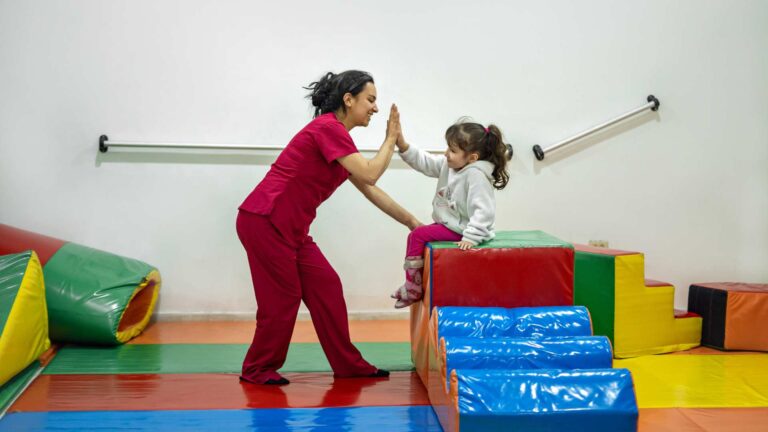Autism support groups in Texas: Autism, a complex neurodevelopmental disorder, affects individuals in various ways, making it essential for those diagnosed and their families to seek support, understanding, and guidance. In Texas, a vast and diverse state, numerous autism support groups have emerged to provide much-needed assistance and community for individuals on the autism spectrum and their families. These organizations, often non-profits, play a vital role in fostering a sense of belonging and acceptance for individuals with autism and those who care for them.
Recently, the CDC announced that 1 in 36 children under eight will likely be diagnosed with autism spectrum disorder (ASD). For the first time, researchers have discovered a higher rate of autism in Latino communities, of which Texas has many. Autism support groups in Texas will serve as one of the pillars of the expanding ASD community, providing a valuable outlet for support, understanding, camaraderie, and advocacy.
At Texas ABA Centers, we lead the way in autism wellness and awareness. It’s our goal to better the lives and outcomes of individuals on the spectrum with Applied Behavior Analysis (ABA), the foremost therapy backed by decades of research that shows quantifiable gains and teaching skills that foster independence. ABA is just one-half of the equation, though. We actively participate in the autism community and work with local governments and businesses to make the world more inclusive for our loved ones.
This article delves into the world of autism support groups in Texas, exploring their significance, range of services, and impact on the lives of those they serve.
Autism Support Groups In Texas: Their Importance
Everything is bigger in Texas. Since the state has a large population, the autism community will be significant, necessitating resources. Autism support groups in Texas aim to provide holistic support to individuals with autism and their families. Their services extend beyond the initial diagnosis, offering ongoing assistance throughout the lifespan of the individual with autism. These groups understand that autism is not just a childhood condition but a lifelong journey; families need continuous support.
These groups are vital for several reasons:
1. Community and Connection: Autism can be an isolating experience, and many struggle with depression and anxiety around interacting. Support groups create a sense of belonging. They provide a safe space for individuals and families to share their triumphs and setbacks, knowing they are among people who genuinely understand the challenging journey.
2. Empowerment Through Knowledge: The first step to accepting something is understanding it. Education builds a foundation for autism awareness and inclusion. Support groups offer workshops and training sessions that empower families with valuable information and practical strategies to improve their loved one’s quality of life.
3. Advocacy and Policy Change: Autism support groups actively engage in advocacy efforts to ensure that the needs and rights of individuals with autism are recognized and protected. They work tirelessly to influence policy changes and improve access to essential services.
4. Social Interaction and Skill Development: One of the best ways to develop communication skills is naturally. By providing opportunities for individuals with autism to talk to each other and supportive people, support groups help social skills develop. Events and activities organized by these groups can enhance communication and boost confidence.
5. Emotional Support: When facing difficulties, having people by your side is always important. Autism support groups offer a lifeline of emotional support. Families facing the challenges of autism can find solace in knowing that others share similar experiences, and they can lean on each other during difficult times.
Notable Autism Support Groups in Texas
The following are statewide resources available for ASD families:
1. Autism Society of Texas: A long-standing and well-established non-profit organization, the Autism Society of Texas offers various programs and services, including educational workshops, social events, advocacy efforts, scholarships, and a helpline for parents seeking guidance.
2. Navigate Life Texas: This group addresses disabilities broadly, with autism support included. They specialize in providing accurate information regarding diagnosis, educational programs, insurance, financial help, family support, and transition to adulthood.
3. Autism Speaks: This is the most prominent national organization supporting autism causes, and they operate a Texas branch serving Central Texas, North Texas, and the Gulf Coast. They are a community and directory for autism resources, fundraising, and supporting autism advocacy while helping families find their way. If you are interested in fundraising efforts, they oversee the Houston Executive Leadership Council, which organizes key autism initiatives.
Local and Regional Groups
In addition to statewide organizations like the Autism Society of Texas, there exists a rich tapestry of local and regional autism support groups across the state of Texas. The following are some notable examples:
1. North Texas Autism Support (NTAS): Serving the Dallas-Fort Worth Metroplex, NTAS is a regional support group that serves a densely populated area. They focus on building a strong community by hosting regular meetings, social events, and workshops. NTAS also emphasizes advocacy efforts to improve local resources and services for individuals with autism.
2. Blue Skyes over Autism: This group’s mission is fundraising for support meetings, education, and fun events that create an autism community and form bonds with families and individuals diagnosed with the condition. They serve the Houston area, and the possibilities include Halloween parties, cruises, golf outings, and crawfish boils.
3. Houston Area Autism Support Groups: The Houston area boasts several local and regional autism support groups, each contributing to the well-being of individuals with autism and their families. These groups often specialize in various aspects of autism, such as early intervention, educational advocacy, or support for adults on the spectrum. An example is the Houston Autism Resources & Support (HARS).
4. Austin Support Groups: Austin has various opportunities for children and adults with autism and their caretakers to form communities and practice social skills. These include the Austin Adults With Disabilities Social Group and Austin Special Needs. Heads up, many of these groups don’t have websites of their own and require social media, usually Facebook, to stay updated with events.
5. West Texas Autism Support: For families residing in West Texas in cities like Lubbock, Amarillo, El Paso, and Midland-Odessa, there are support groups like the El Paso branch of the Autism Society of Texas that can provide resources and events to help you get started and build community.
Texas ABA Centers and Autism Support
Texas ABA Centers is more than a place for therapy; it’s a family. On top of offering the best ABA therapy, we organize frequent outings and events so kids can play with each other and see the world in autism-friendly spaces.
We care deeply about your loved one’s growth, and with the gold standard ABA therapy administered by board-certified and qualified professionals, we can help you overcome any difficulties. With locations in Austin, Dallas, and Houston, we support counties like Tarrant, Fort Bend, Williamson, and many others; we help families get the services they need.
Call (877) 771-5725 or visit our website for a free consultation and discover the fastest-growing autism community in the state.









